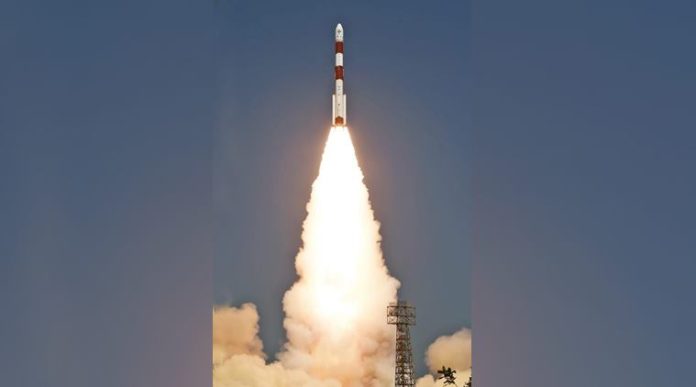New Delhi (NVI): The Indian Space Research Organisation (ISRO) successfully launched the Brazilian satellite Amazonia-1 today, along with 18 other satellites on board its PSLV-C51 rocket from Satish Dhawan Space Centre (SDSC) SHAR, Sriharikota in Andhra Pradesh.
This is for the first time that a Brazilian satellite was launched by an Indian rocket from Sriharikota spaceport.
“#PSLVC51 lifts off successfully from Satish Dhawan Space Centre, Sriharikota #ISRO #NSIL #INSPACe #Amazonia1,” ISRO said in a tweet.
#PSLVC51 lifts off successfully from Satish Dhawan Space Centre, Sriharikota#ISRO #NSIL #INSPACe #Amazonia1 pic.twitter.com/38WNf5ciIo
— ISRO (@isro) February 28, 2021
This is ISRO’s first mission of 2021. The countdown commenced at 08.54 hours yesterday. The blastoff was scheduled at 10.24 hours from Satish Dhawan Space Centre in Nellore district of AP.
PSLV-C51 rocket is the 53rd mission of PSLV. ISRO Chief K Sivan congratulated the Brazilian team after the successful launch.
“In this mission, India and ISRO, feel extremely proud to launch the first satellite designed, integrated by Brazil. The satellite is in very good health. I congratulate the Brazilian team,” ISRO Chief said.
Prime Minister Narendra Modi congratulated Brazilian President Jair Bolsonaro on the successful launch of Brazil’s Amazonia-1 satellite.
“Congratulations President @jairbolsonaro on the successful launch of Brazil’s Amazonia-1 satellite by PSLV-C51. This is a historic moment in our space cooperation and my felicitations to the scientists of Brazil,” he tweeted.
Congratulations to NSIL and @isro on the success of the 1st dedicated commercial launch of PSLV-C51/Amazonia-1 Mission. This ushers in a new era of Space reforms in the country. 18 co-passengers included four small satellites that showcase dynamism and innovation of our youth. pic.twitter.com/BbWYGLsyvo
— Narendra Modi (@narendramodi) February 28, 2021
A copy of Bhagvad Gita in the form of an SD card and a photograph of Prime Minister Narendra Modi is also part of the package.
The 18 ‘co-passengers’ include four of IN- SPACe and 14 of ISRO’s commercial arm, NewSpace India (NSIL). Brazil’s 637-kg Amazonia-1, an optical earth observation satellite, would further strengthen the existing structure by providing remote sensing data to users for monitoring deforestation in the Amazon region and analysis of diversified agriculture across the Brazilian territory.
-ARK








